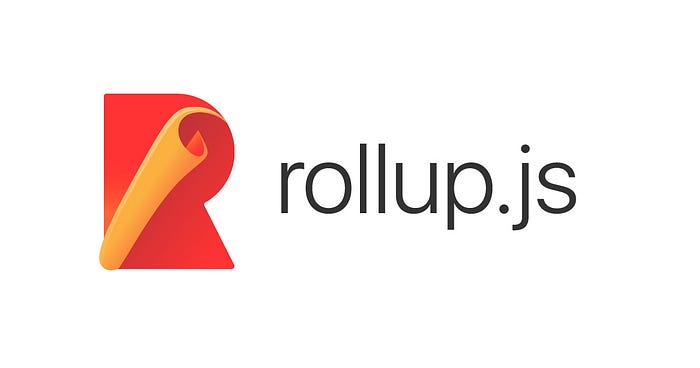Rollup: CommonJS to UMD

Whereas Webpack is great for building apps, Rollup is great for building libraries.
Rollup supports ES modules out of the box. However, to support CommonJS, the following plugins are required:
Prerequisites
Setup
Install rollup:
$ npm install rollupCreate the entry file index.js:
$ echo "export default 'Hello, world!'" > index.jsInitialize package.json:
$ npm init --yesAdd the build script to package.json:
The script compiles
index.jstodist/bundle.js.
Run the build script:
$ npm run buildTo find that you got the error:
Error: You must specify "output.format", which can be one of "amd", "cjs", "system", "esm", "iife" or "umd".Output Format
Rollup expects an output format. Here are the general guidelines:
- For browsers, use
iife(Immediately Invoked Function Expression) - For Node.js, use
cjs(CommonJS) - For both browsers and Node.js, use
umd(Universal Module Definition)
To generate a UMD bundle with MyModuleName as the export name:
$ npx rollup index.js --file dist/bundle.js --format umd --name 'MyModuleName'Load with script
Load the module in a browser using a <script> tag:
Load with AMD
Load the module in a browser using AMD (Asynchronous Module Definition):
Load with CommonJS
Load the module in Node.js using CommonJS:
$ node
> const MyModuleName = require('./dist/bundle');
> console.log(MyModuleName);
Hello, world!Config
Instead of passing the options via the CLI (command-line interface), you can specify them in the configuration file rollup.config.js.
Create the file rollup.config.js:
$ touch rollup.config.jsAdd the config:
Update the build script in package.json to use the config file:
To give the config file a name other than the default, you’ll need to specify the custom file location:
$ npx rollup --config my.config.jsPlugins
CommonJS
To use CommonJS syntax, install @rollup/plugin-commonjs:
$ npm install @rollup/plugin-commonjsAdd the plugin to the rollup config:
Now refactor index.js:
After rebuilding the bundle, loading it with script, AMD, or CommonJS should continue to work:
$ npm run build
$ open script.html
$ open amd.html
$ node -p "require('./dist/bundle')"
Hello, world!Node Resolve
Let’s say you want to use lodash in index.js:
$ npm install lodashIn order for rollup to locate 3rd party modules in node_modules, you need to install @rollup/plugin-node-resolve:
$ npm install @rollup/plugin-node-resolveAdd the plugin to the rollup config:
Build the bundle to verify it still works:
$ npm run build
$ node -p "require('./dist/bundle')"
Hello, world!If you want the module resolution to respect the “browser” field in
package.json, you can set the optionresolve({ browser: true }).
Terser
To minify your bundle with rollup v2, use terser.
Install rollup-plugin-terser:
$ npm install rollup-plugin-terserAdd the plugin to the rollup config:
Use an environment variable to determine whether you want to build a minified or unminified bundle:
Set the environment variable before you run the build command:
$ NODE_ENV=production npm run buildAlternatively, this can be done in the package.json build script:
Uglify
To minify the bundle with rollup v1, use UglifyJS.
Install rollup-plugin-uglify:
$ npm install rollup-plugin-uglifyAdd the plugin to the rollup config:
Now you can build an uglified bundle:
$ npm run build
$ node -p "require('./dist/bundle')"
Hello, world!JSON
To import JSON files, install @rollup/plugin-json:
$ npm install @rollup/plugin-jsonAdd the plugin to the rollup config similarly to how it was done for the other plugins:
Resources
To learn more about Rollup, check out the official documentation.

